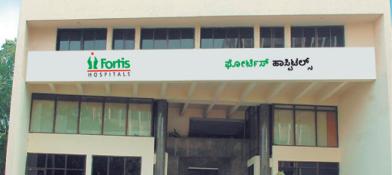Endometrial ablation
Overview:
Endometrial ablation is a surgery that is aimed at destroying and removing the lining of the uterus. The lining is called the endometrium. The procedure is carried out to decrease the bleeding during the periods. After the procedure, the menstrual flow for some people may stop entirely. It is a non-invasive procedure that requires no cuts. The doctor puts a particular instrument through the vagina into the opening of the uterus called the cervix.
Endometrial ablation can be performed in a clinic or hospital, and the factors to consider before the surgery are the size the health of the uterus, and the overall wellness of the person.
Different Methods Of Endometrial Ablation:
The doctor uses several methods to carry out the procedure. These include:
- Electricity (electrical or electrocautery): This method involves using electric current passed through a wire, which is used to destroy the uterus lining.
- Fluids (hydrothermal): The doctor uses a hot liquid that is pumped inside the uterus to destroy the lining.
- Balloon Therapy: This method involves inserting a tube into the uterus, which has a balloon at the end. The balloon is filled with a heated fluid that destroys the lining.
- High-energy radio waves (radiofrequency ablation): The doctor puts an electrical mesh inside the uterus and expands it. They later pass an electric current through the mesh that destroys the lining.
- Cold (cryoablation): This method uses extreme cold temperatures to freeze and remove the lining.
- Microwaves (microwave ablation): The doctor uses a probe to send microwave energy into the uterus to destroy the lining.
Some endometrial ablations are conducted in combination with a hysteroscope. This instrument allows the doctor to view what is inside the uterus through a camera on the tool.
Indications For The Use Of Endometrial Ablation:
- The procedure is advised for women who have excessive bleeding and are very heavy (that requires changing sanitary pads every hour) or prolonged periods(more than seven days) affecting their daily routine and blood count. It is also recommended for women who have bleeding between their periods.
- The procedure works for women who have hormonal issues around menopause or after it.
- Women who have fibroids, polyps, or endometrial cancer benefit from this procedure.
The doctor sometimes may prescribe birth control pills or an intrauterine device (IUD) to decrease the flow of blood during periods.
Endometrial Ablation helps control excessive bleeding or stop it entirely by removing the lining of the uterus. The lining is where the egg gets implanted after fertilization. Hence, women who wish to get pregnant should not opt for this procedure.
The procedure is not advised for women with the following conditions:
- Menopause
- Uterine cancer
- Pelvic infection
- Vaginal infection
- Recent pregnancy
- A weak uttering wall
- Intrauterine device (IUD)
- Uterine surgery
- C-section incision
- Abnormal uterus structure like small or large uterus and narrow cervix.
Understanding The Endometrial Ablation Procedure:
- The doctor checks if the woman is pregnant, as the procedure cannot be done if the lady is pregnant.
- A tube is inserted in the uterus to collect a tissue sample to check for cancer.
- An ultrasound is performed to check the uterus and decide which method to use.
- The Intrauterine Device is removed if present.
- The doctor prescribes medicines to make the uterine lining thinner as the procedure works better on thin linings. The doctor may also conduct a dilation and a curved procedure to remove some portion of the lining.
- The procedure is done at a clinic or operation theatre, and IV and anesthesia are given. The person is given a gown to wear.
- They are asked to lie down with feet and legs on stirrups.
- The cervix is dilated through medicines or rods and cleaned with an antiseptic solution.
- The doctor numbs the area to inject medicines.
- A thin rod-like instrument is inserted in the uterus to check its length, and it may lead to some cramps.
- A computer controls the pressure, temperature, and duration of the treatment.
- When the procedure is done, the tools are removed.
- After the procedure, one might experience cramps, which can be relieved through painkillers.
- Some women may have vaginal discharge, which may be either watery or mixed with blood for a few weeks, mostly for the first few days after the procedure.
- There may be an urge to pass urine frequently within the first 24 hours of the procedure.
- The doctor’s advice needs to be followed for resuming daily activities like exercise, work, and having sexual intercourse.
- After a few months, the person will have lighter or no periods at all.
- The patient should continue to use birth control pills as per the doctor’s advice.
Risks and Complications:
Although endometrial ablation is generally deemed safe, it does entail certain risks and potential complications, including:
- Infection: Post-procedural infection poses a risk, sometimes necessitating antibiotic therapy.
- Uterine Perforation: In rare cases, the instrumentation utilized during the procedure may inadvertently puncture the uterine wall.
- Damage to Adjacent Organs: There exists a slight risk of accidental damage to neighboring organs such as the bowel or bladder.
- Failure to Curtail Bleeding: In specific scenarios, endometrial ablation may prove ineffective in reducing menstrual bleeding, prompting the need for supplementary treatment or surgery.
- Ectopic Pregnancy: The pregnancies that occur after the procedure aren’t termed as usual. They are termed as high risk for the mother and the baby and may end up as a miscarriage. This happens because the lining of the uterus has been damaged, and the placenta may not get implanted correctly. This can lead to the pregnancy occurring in the cervix or the fallopian tubes.
Conclusion:
Endometrial Ablation is a relatively safe procedure and tremendously helps women who face issues such as heavy bleeding that hampers their daily lives. However, since certain conditions and factors don’t make this surgery viable, it is always recommended to consult a doctor and follow their advice at each step.
Popular Searches :
Hospitals: Cancer Hospital in Delhi | Best Heart Hospital in Delhi | Hospital in Amritsar | Hospital in Ludhiana | Hospitals in Mohali | Hospital in Faridabad | Hospitals in Gurgaon | Best Hospital in Jaipur | Hospitals in Greater Noida | Hospitals in Noida | Best Kidney Hospital in Kolkata | Best Hospital in Kolkata | Hospitals in Rajajinagar Bangalore | Hospitals in Richmond Road Bangalore | Hospitals in Nagarbhavi Bangalore | Hospital in Kalyan West | Hospitals in Mulund | Best Hospital in India | | Cardiology Hospital in India | Best Cancer Hospital in India | Best Cardiology Hospital in India | Best Oncology Hospital In India | Best Cancer Hospital in Delhi | Best Liver Transplant Hospital in India
Doctors: Dr. Rana Patir | Dr. Rajesh Benny | Dr. Rahul Bhargava | Dr. Jayant Arora | Dr. Anoop Misra | Dr. Manu Tiwari | Dr. Praveer Agarwal | Dr. Arup Ratan Dutta | Dr. Meenakshi Ahuja | Dr. Anoop Jhurani | Dr. Shivaji Basu | Dr. Subhash Jangid | Dr. Atul Mathur | Dr. Gurinder Bedi | Dr. Monika Wadhawan | Dr. Debasis Datta | Dr. Shrinivas Narayan | Dr. Praveen Gupta | Dr. Nitin Jha | Dr. Raghu Nagaraj | Dr. Ashok Seth | Dr. Sandeep Vaishya | Dr. Atul Mishra | Dr. Z S Meharwal | Dr. Ajay Bhalla | Dr. Atul Kumar Mittal | Dr. Arvind Kumar Khurana | Dr. Narayan Hulse | Dr. Samir Parikh | Dr. Amit Javed | Dr. Narayan Banerjee | Dr. Bimlesh Dhar Pandey | Dr. Arghya Chattopadhyay | Dr. G.R. Vijay Kumar | Dr Ashok Gupta | Dr. Gourdas Choudhuri | Dr. Sushrut Singh | Dr. N.C. Krishnamani | Dr. Atampreet Singh | Dr. Vivek Jawali | Dr. Sanjeev Gulati | Dr. Amite Pankaj Aggarwal | Dr. Ajay Kaul | Dr. Sunita Varma | Dr. Manoj Kumar Goel | Dr. R Muralidharan | Dr. Sushmita Roychowdhury | Dr. T.S. MAHANT | Dr. UDIPTA RAY | Dr. Aparna Jaswal | Dr. Ravul Jindal | Dr. Savyasachi Saxena | Dr. Ajay Kumar Kriplani | Dr. Nitesh Rohatgi | Dr. Anupam Jindal
Specialties: Heart Lung Transplant | Orthopedic | Cardiology Interventional | Obstetrics & Gynaecology | Onco Radiation | Neurosurgery | Interventional Cardiology | Gastroenterologist in Jaipur | Neuro Physician | Gynecologist in Kolkata | Best Neurologist in India | Liver Transfer































